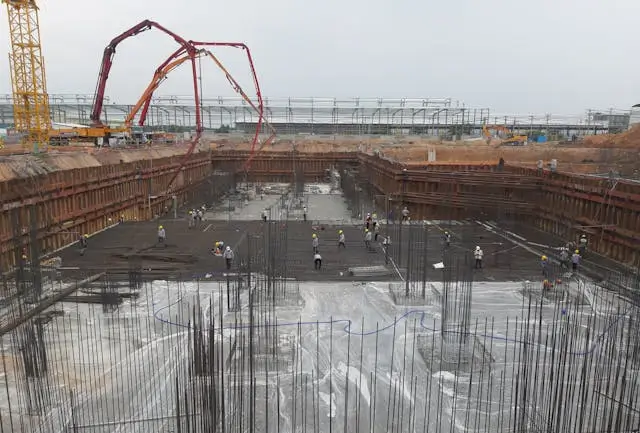Civil engineering works encompass a lot of aspects – that’s why civil engineers go through years of academic learning and professional training to develop and hone their skills and know-how.
Among the most important aspects of civil engineering is foundation engineering. What is it? What are the important principles of foundation engineering? And what are the various practical applications for foundation engineering?
This post aims to answer the abovementioned questions. If you want to learn more about the answers to them, read on.
Foundation Engineering 101
What is foundation engineering – you may ask? It involves the sound designing and constructing of safe, durable, and stable foundations for a multitude of civil engineering structures and buildings.
Foundation engineering is used in different sectors and building types. It’s important for home builders who are responsible for erecting starter homes for many families and private individuals.
Foundation engineering is also used in putting up gleaming skyscrapers and gigantic office towers for multinationals and companies that are worth billions. Aside from that, civil engineering structures like roads, bridges, and so on are a part of foundation engineering.
Keep in mind that there goes a lot of things in foundation engineering. It involves studying the soil and rock underneath a specific structure or building, assessing building properties, and determining how the intended foundations will be able support the structure’s overall load.
Foundation engineers, those who are specializing in building structurally-sound foundations, go through a lot of steps so that they can design and build foundations that prevent settlement, cracking, and others – issues that’ll negatively impact the integrity of a structure or building.
Foundation Engineering Key Principles
Know that you know about what foundation engineering is, you can now proceed to answering the following question: what are the key principles to foundation engineering? Lucky for you, the following points will cover that. Keep on reading below.
Soil Analysis
When it comes to foundation engineering, doing soil analysis is a must. Foundation engineers carry out soil tests to determine what kind of soil they’re working with, what are the other present properties that can affect the foundation, and many more. Important data like soil moisture, density, and many more will be taken into consideration by foundation engineers to build a structurally-sound foundation.
Foundation Load-Bearing Capabilities
The load-bearing capacity is the maximum load force the soil can take on sans having to deal with structural foundation failure. Foundation engineers calculate the foundation load-bearing capacity figure and ensure that the foundation design can distribute the load evenly across the soil to prevent any structural issues.
Settlement
Settlement refers to the downward movement of a structure due to soil compression. Controlled settlement is normal, yet too much or uneven settlement can cause major structural problems. Foundation engineers design foundations to minimize and control settlement, ensuring the structure remains level and stable over time.
Different Types of Foundations
There are several types of foundations, with each one fit for different soil conditions and structures. The two main categories are shallow foundations and deep foundations.
Shallow foundations are used when the soil close to the surface has enough strength to support the load. Examples include raft foundation, pad foundation, strip foundation, and so on.
Meanwhile, deep foundations are utilized when the surface soil isn’t strong enough. Deep foundations work by transferring the load to deeper, more stable layers underneath the soil. Examples include pile foundations and drilled shafts.
Foundation Engineering Applications
There are many applications for foundation engineer in the civil engineering world. They include:
Residential Construction
Foundation engineering helps make sure that homes are built on stable ground. This involves designing foundations that can withstand varying soil conditions and loads.
Commercial Structures
Buildings with commercial purposes, like shopping malls, office buildings, and others, require robust foundations due to their size and load. Foundation engineers design foundations that can support heavy loads and resist environmental factors like earthquakes and wind. This ensures the safety and longevity of the structure.
Civil Engineering Works Projects
Infrastructure projects like bridges, highways, and tunnels rely heavily on foundation engineering. These structures often face challenging conditions, such as varying soil types, water tables, and loads. Foundation engineers use complex technical techniques to design foundations that can handle these challenges, ensuring the infrastructure remains safe and functional.
Industrial-Scale Structure
To add, facilities intended for industrial usage, like factories and warehouses, benefit from foundation engineering. These structures often house heavy machinery and equipment, requiring foundations that can support significant loads and vibrations. Foundation engineers design foundations that can handle these demands, ensuring the stability and safety of the facility.
To Conclude
Foundation engineering is a vital field that ensures the stability and safety of structures.
By understanding the different key principles and applications of foundation engineering, you can appreciate the importance of a well-designed foundation. From private residences to large scale engineering works and projects, foundation engineering has an important role in professional civil engineers creating resilient and highly durable structures and buildings.

